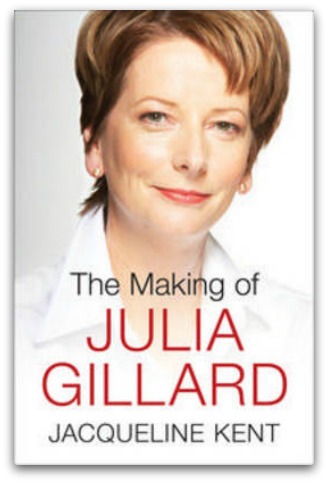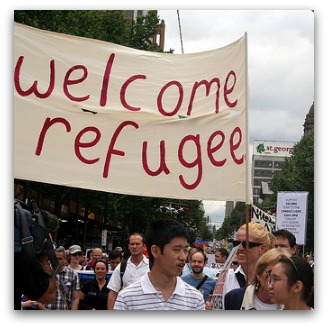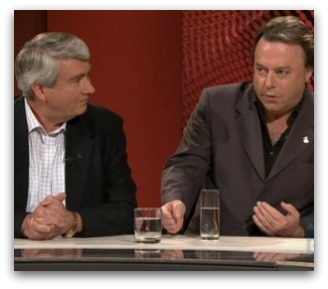Keywords: Catholic Health Care
There are more than 200 results, only the first 200 are displayed here.
-

AUSTRALIA
- John Warhurst
- 17 October 2011
10 Comments
Gillard's atheism puts her in stark contrast to her immediate predecessors Kevin Rudd and John Howard. We consider several implications of Gillard's position, including her relations with church-state issues and community attitudes towards gay marriage and euthanasia.
READ MORE
-

RELIGION
- Frank Brennan
- 13 September 2011
5 Comments
The Church of the 21st century should be the exemplar of due process, natural justice and transparency. While there can be little useful critique of the final decision of Pope Benedict to force the early retirement of Bishop Bill Morris, there is plenty of scope to review the processes leading up to it.
READ MORE
-

RELIGION
- Frank Brennan
- 24 August 2011
10 Comments
Factors such as education, housing and connectedness have a big impact on health. There is no point telling an unemployed homeless person: 'Don't smoke, it's bad for you.' It's time the Government made a concerted effort to address the health needs of marginalised groups.
READ MORE 
-

RELIGION
- Frank Brennan
- 24 August 2011
1 Comment
'We need to break down the silo mentality between health, welfare and education. This exists in church agencies as much as elsewhere in society. We must be committed to providing first rate health care to our patients, but also to creating a more equal society.' Text from Frank Brennan's MercyCare Oration.
READ MORE
-

EUREKA STREET/ READER'S FEAST AWARD
- Julie McNeill
- 24 August 2011
4 Comments
Sociologist Eva Cox heard all the vitriol about boat people when, as a five-year-old Jewish girl, she fled Nazi Germany and headed to Australia. My nine-year-old mother was a different kind of boat arrival: one of 135,000 'child migrants' imported under the 'Populate or Perish' policy.
READ MORE 
-

RELIGION
- Frank Brennan
- 19 July 2011
12 Comments
This is not a regional solution to a regional problem, but a bilateral attempt at solving an Australian problem. To stop the boats, one needs to engage in measures contrary to the Refugee Convention. Church groups can not endorse something they know to be either unworkable or immoral.
READ MORE 
-

RELIGION
- Frank Brennan
- 18 July 2011
Speech given by Fr Frank Brennan SJ at the 'Law and Religion: Legal Regulation of Religious Groups, Organisations and Communities' Conference Dinner in Melbourne on 15 July 2011.
READ MORE
-

RELIGION
- Frank Brennan
- 18 July 2011
5 Comments
When I appeared on Q&A with Christopher Hitchens, a young man asked whether we can 'ever hope to live in a truly secular society' while the religious continue to 'affect political discourse and decision making' on euthanasia, same-sex unions and abortion. Hitchens was simpaticao. I was dumbstruck.
READ MORE
-

RELIGION
- Frank Brennan
- 28 June 2011
27 Comments
Physician Chuck Bentz received a request to be the 'second opinion' for the assisted-suicide of a melanoma patient. Bentz objected and said there were better ways to address the needs of this patient, whom he had known for over a decade. Next he knew, his patient was dead.
READ MORE 
-

AUSTRALIA
The US Catholic Bishops' pastoral letter 'Economic Justice for All' says the extent of the suffering of the poor 'is a measure of how far we are from being a true community'. It is difficult to imagine how justice can be done for the Stolen Generations without compensation, redress and reparation.
READ MORE 
-

AUSTRALIA
- Fatima Measham
- 18 May 2011
30 Comments
While Catholic bishops in the Philippines have opposed modern forms of birth control, the public paralysis this has engendered over sexual health care has led to high rates of abortion. The Philippine Catholic Church can thus be seen to be at odds with its ministry for the poor.
READ MORE 
-

RELIGION
- Frank Brennan
- 06 April 2011
7 Comments
We need clever strategic and moral thinkers among our health professionals, who can engage with the demands of an aging population, with the gap in life-expectancy between Aboriginal and non-Aboriginal Australians, and with the increasingly politically correct debate about euthanasia.
READ MORE